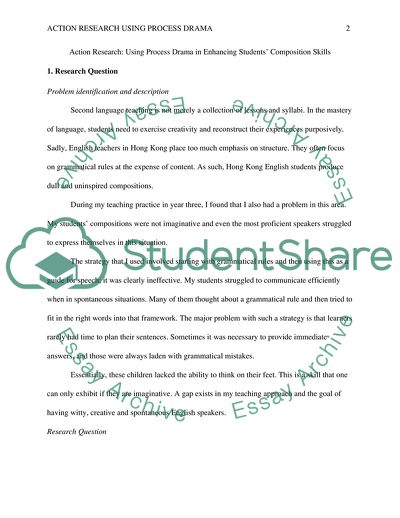Cite this document
(Using Process Drama in Enhancing Students Composition Skills Research Proposal Example | Topics and Well Written Essays - 3000 words, n.d.)
Using Process Drama in Enhancing Students Composition Skills Research Proposal Example | Topics and Well Written Essays - 3000 words. https://studentshare.org/education/1803790-action-research-using-process-drama-in-enhancing-students-composition-skills
Using Process Drama in Enhancing Students Composition Skills Research Proposal Example | Topics and Well Written Essays - 3000 words. https://studentshare.org/education/1803790-action-research-using-process-drama-in-enhancing-students-composition-skills
(Using Process Drama in Enhancing Students Composition Skills Research Proposal Example | Topics and Well Written Essays - 3000 Words)
Using Process Drama in Enhancing Students Composition Skills Research Proposal Example | Topics and Well Written Essays - 3000 Words. https://studentshare.org/education/1803790-action-research-using-process-drama-in-enhancing-students-composition-skills.
Using Process Drama in Enhancing Students Composition Skills Research Proposal Example | Topics and Well Written Essays - 3000 Words. https://studentshare.org/education/1803790-action-research-using-process-drama-in-enhancing-students-composition-skills.
“Using Process Drama in Enhancing Students Composition Skills Research Proposal Example | Topics and Well Written Essays - 3000 Words”. https://studentshare.org/education/1803790-action-research-using-process-drama-in-enhancing-students-composition-skills.


